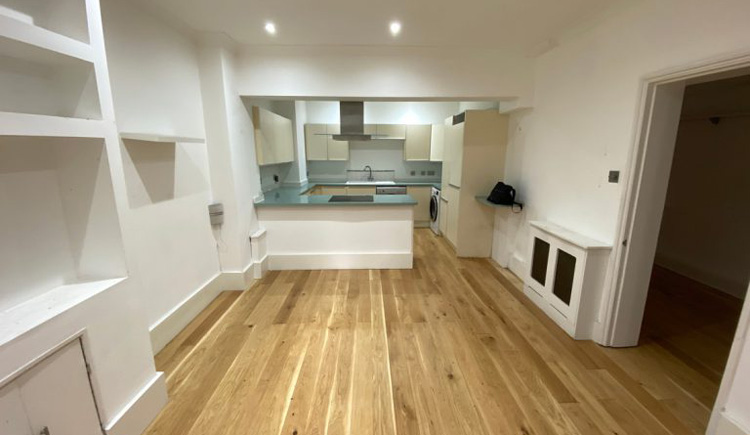The challenges of selecting a builder or trades person
Selecting builders and trades people poses numerous challenges for the public, a difficulty even industry professionals encounter. However, there are some helpful tips and pitfalls to watch out for. Having worked in the industry for 40 years, and conducted surveys and inspections where issues have arisen, I thought it might be useful to share my experiences to assist homeowners.
An overview
The public often has a negative perception of the building industry, anticipating unreliable suppliers, unexpected costs, and project delays. However, this perception does not reflect the experience of professionals within the construction sector. How can you as homeowners benefit from this insider knowledge?
The industry does have systemic issues within certain parts of the industry, being largely unregulated and populated by individuals with varying levels of experience and often lacking formal qualifications.
While the Internet offers easy access to suppliers, and numerous websites display impressive profiles for “approved” contractors, navigating these options can be a minefield despite improved quality assurance from these portals.
Often, as consumers, we contribute to problems in construction projects by prioritising the lowest price over detailed briefing and specifications, and wonder why it then goes wrong! We rarely buy the cheapest clothes or television or anything else in our lives that matters so why would we use this basis when working on our own homes which is probably our most expensive and prized asset of all?
The larger construction companies have stopped hiring apprentices or providing in-house training. Instead they prefer to outsource to specialised subcontractors, such as plumbers and electricians, hiring them as needed and releasing them once their tasks are completed. Many of these specialist trades operate as small businesses or independents, lacking the resources, financial stability, or job security to train employees on a permanent basis. Consequently, the industry is dominated by “one-man bands,” which limits opportunities for “on the job” learning and skill sharing, ultimately undermining quality and craftsmanship.
So how do you find the right person for the job?
Firstly, what to not to do when looking for a builder
Do not rely solely on the Internet, attractive advertisements, or professionally branded vehicles when selecting a builder as appearances can be misleading.
Even websites that verify a company’s proficiency often prioritise advertisers over those with established reputations who don’t require advertising as they have plenty of work.
While these portals might perform due diligence on the financial stability, insurance, and customer satisfaction of a company, they do not necessarily assess the technical competence to do the work. The technical ability to execute projects to a high standard, which professionals in the construction industry can confirm, is the most important criteria. Most builders recommended by architects and engineers do not need to advertise for work.
DON’T ask a friend
Asking for recommendations from friends or neighbours is a common approach which may work occasionally but usually doesn’t end well in our experience. While they often mean well, friends may recommend a contractor based on traits such as being “nice” or punctual, without the expertise to assess the technical quality of the work. For example, they might not recognise whether the right materials were used or if they meet the necessary strength requirements.
Other factors
Additionally, numerous financial and contractual issues deserve attention.
Questions such as whether your documentation forms a legally binding contract, if the pricing is fair, or whether payment should be made upfront are vital. It’s important to determine who is responsible for notifying local authorities under Building Regulations. Whether the Party Wall Act is applicable, and if landlord consent is necessary for flats or leaseholds. Also whether there are adequate plans and documentation to satisfy a landlord’s requirements.
Homeowners often face numerous complex issues they are unlikely to understand, and it may not be in a builder’s interest to clarify these matters fully. Some builders are unaware of when work needs to be reported to the Local Authority under Building Regulations or the Party Wall Act 1996, leading to complications that could be easily avoided. Even when projects seem to proceed smoothly, lacking formal approvals and paperwork can complicate future buying and selling of a property.
What should I do when looking for a builder or trades person?
The best course of action is to consult and appoint an industry expert, such as a professional, to manage the challenging tasks for you. This includes preparing specifications, scopes of work, and associated drawings, as well as obtaining quotes from their exclusive list of builders.
Chartered Architects, Chartered Building Surveyors, and Chartered Structural Engineers in London have dedicated their careers to making these precise selections for clients such as you.
You may think this sounds expensive, but be assured, faulty building work is far costlier than doing it right the first time. Building projects are inherently expensive. However, poor workmanship can lead to even greater expenses, beyond just monetary costs. The stress, delays, and lack of control contribute significantly to the overall burden, both financially and emotionally.
It is important to research and find the right professional based on their expertise, type, and size of work. As long as they are chartered and qualified, you should receive unbiased and professional advice.
If a project is too small, too specialised, or involves only one or two trades, local and smaller professional practices are only too happy to assist their local community by recommending suitable specialist contractors. This guidance is often offered as a professional courtesy and typically does not incur any charges.




